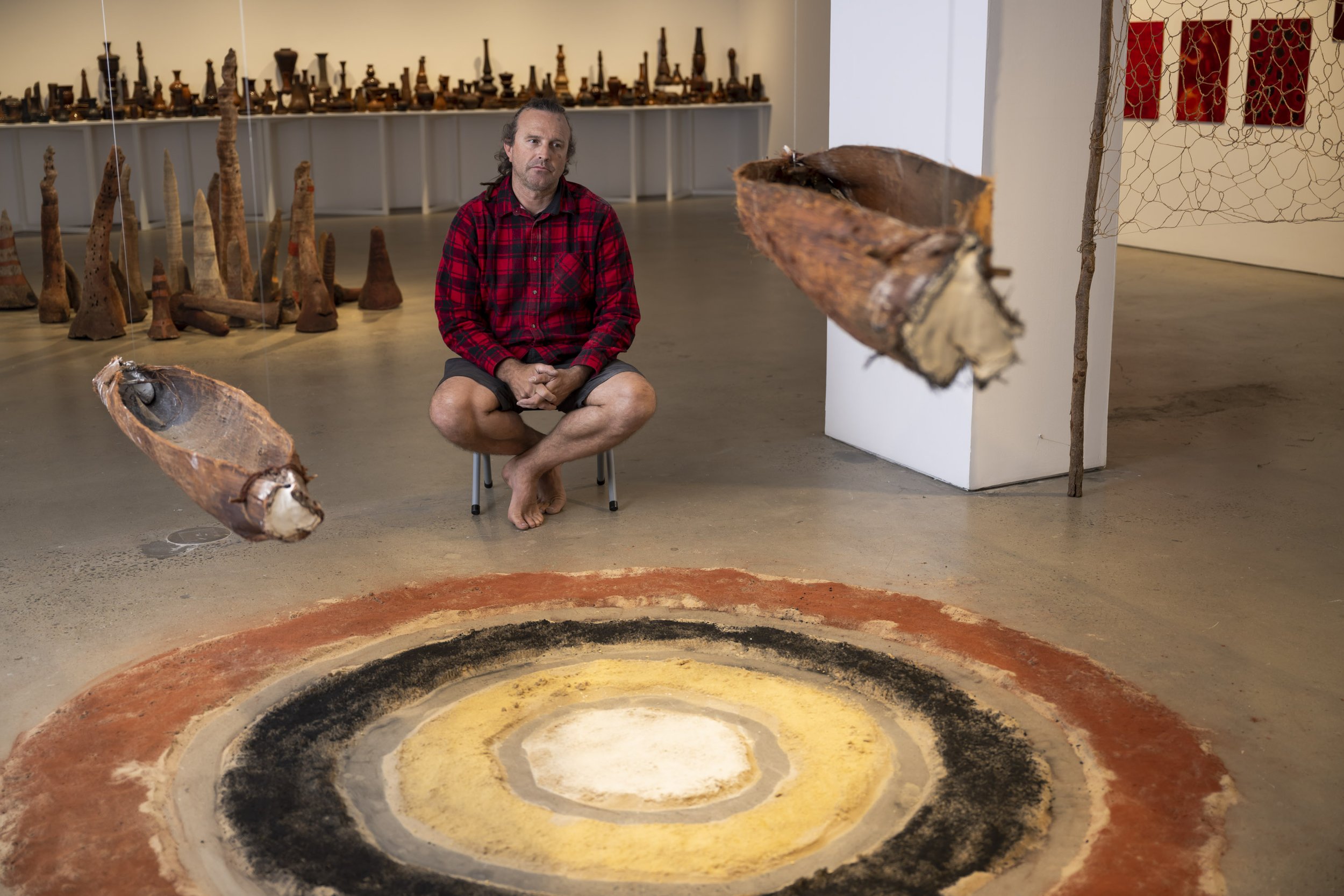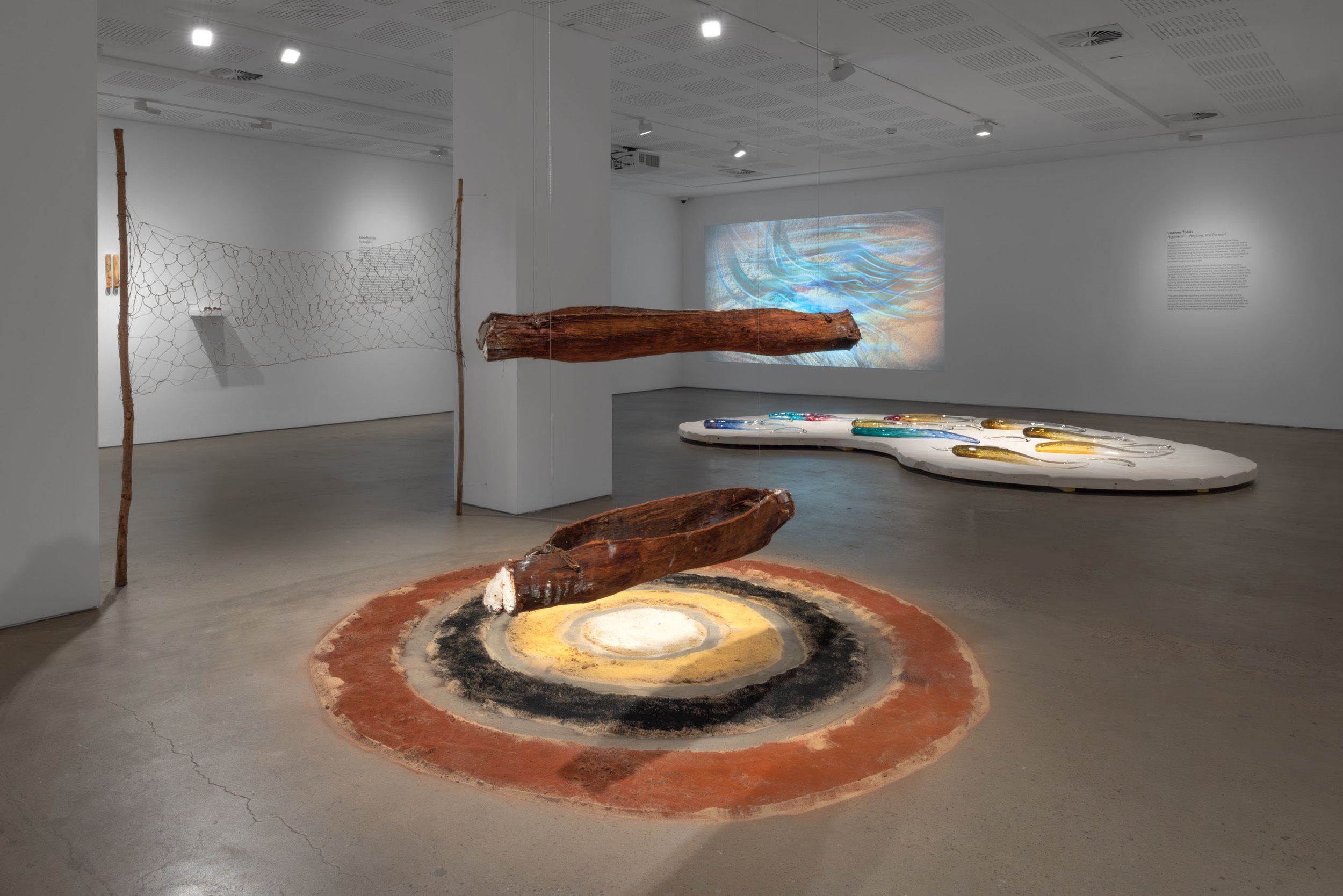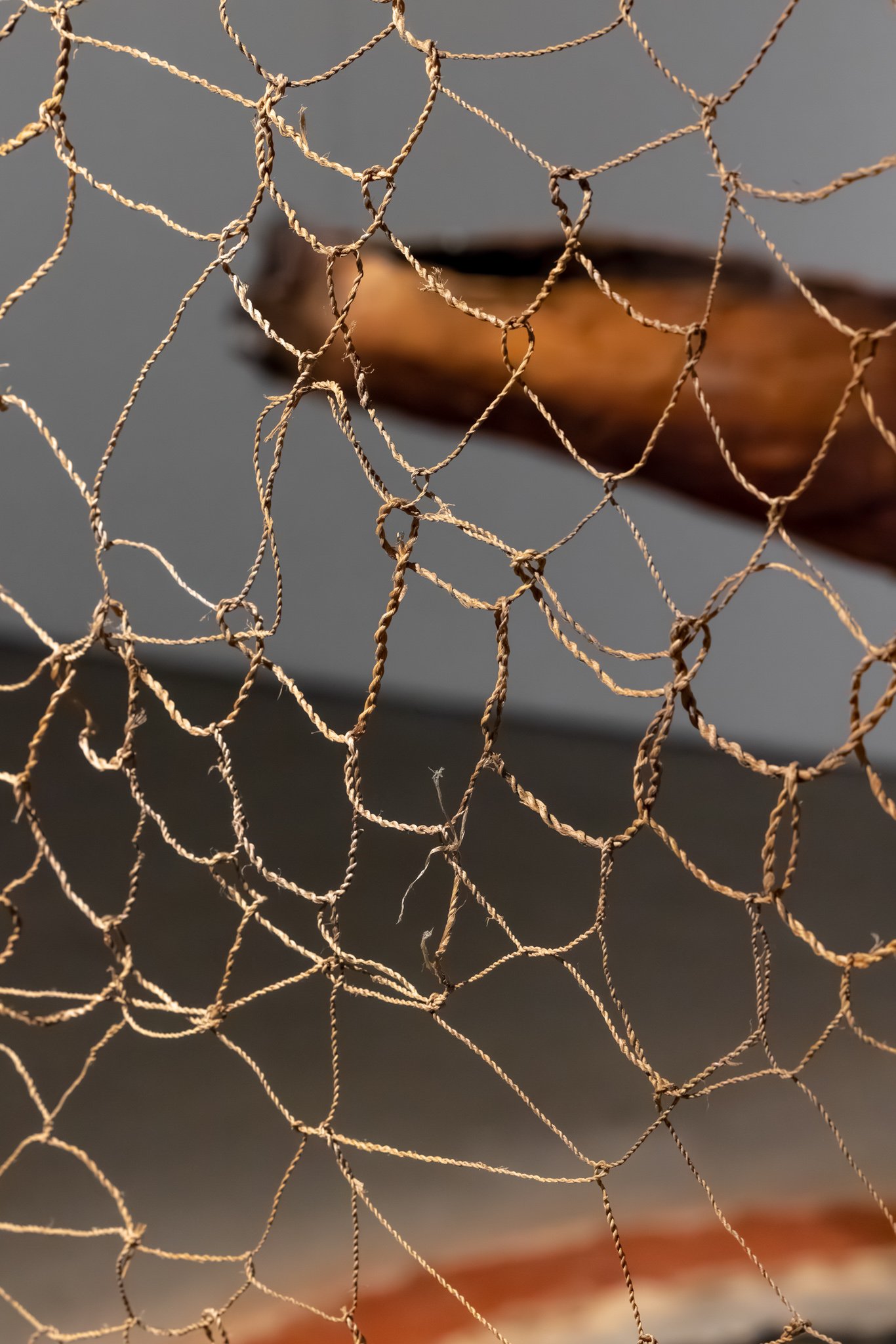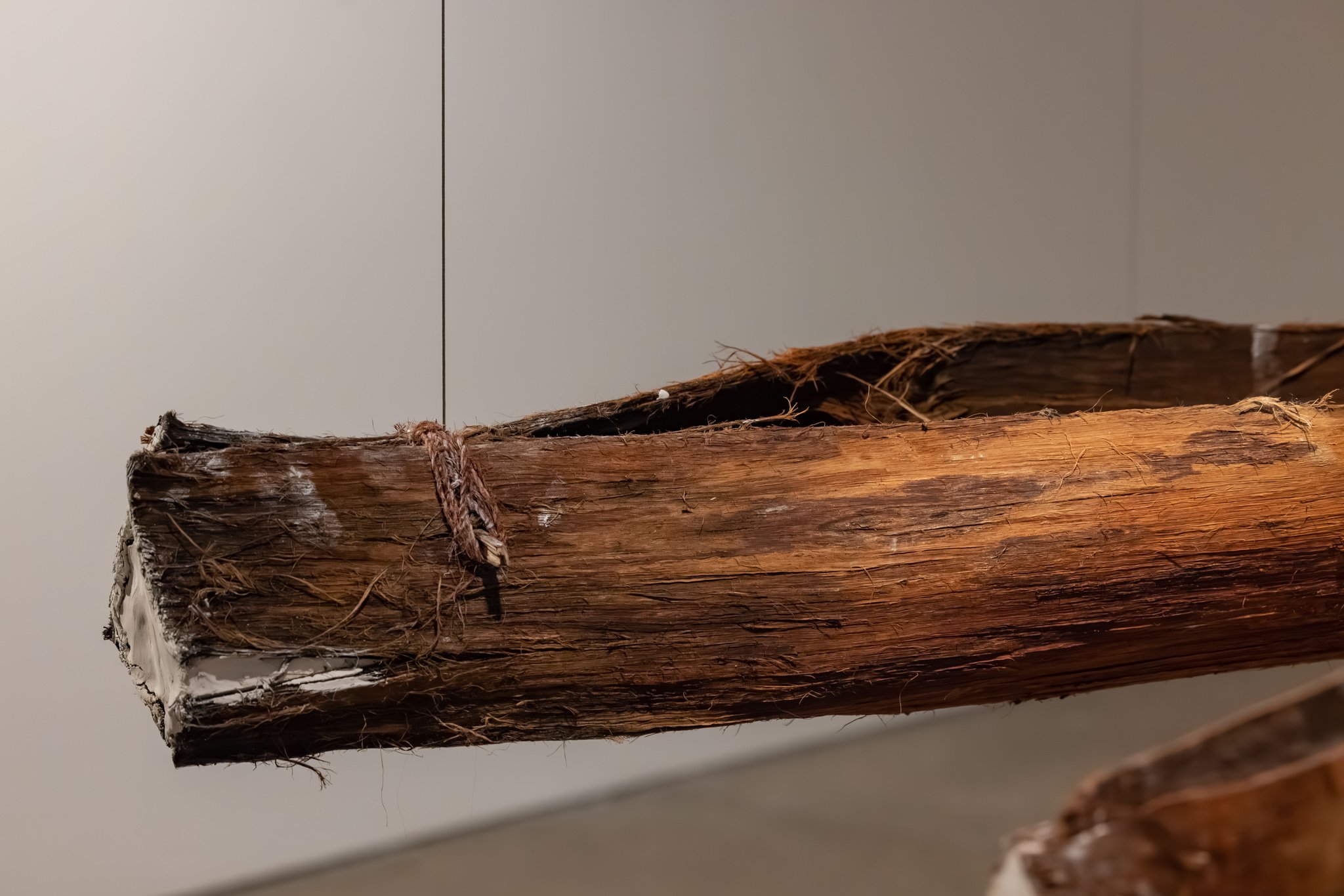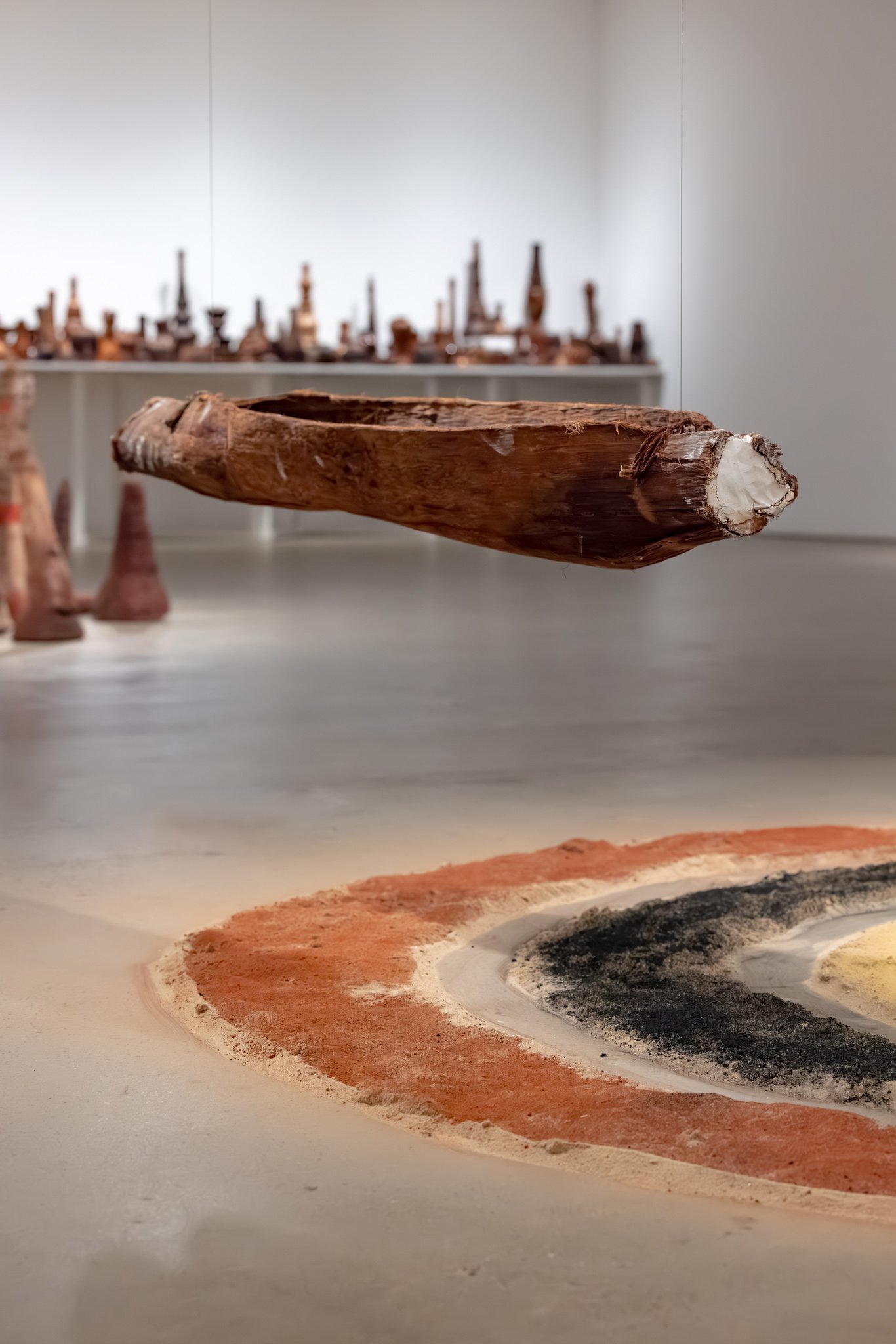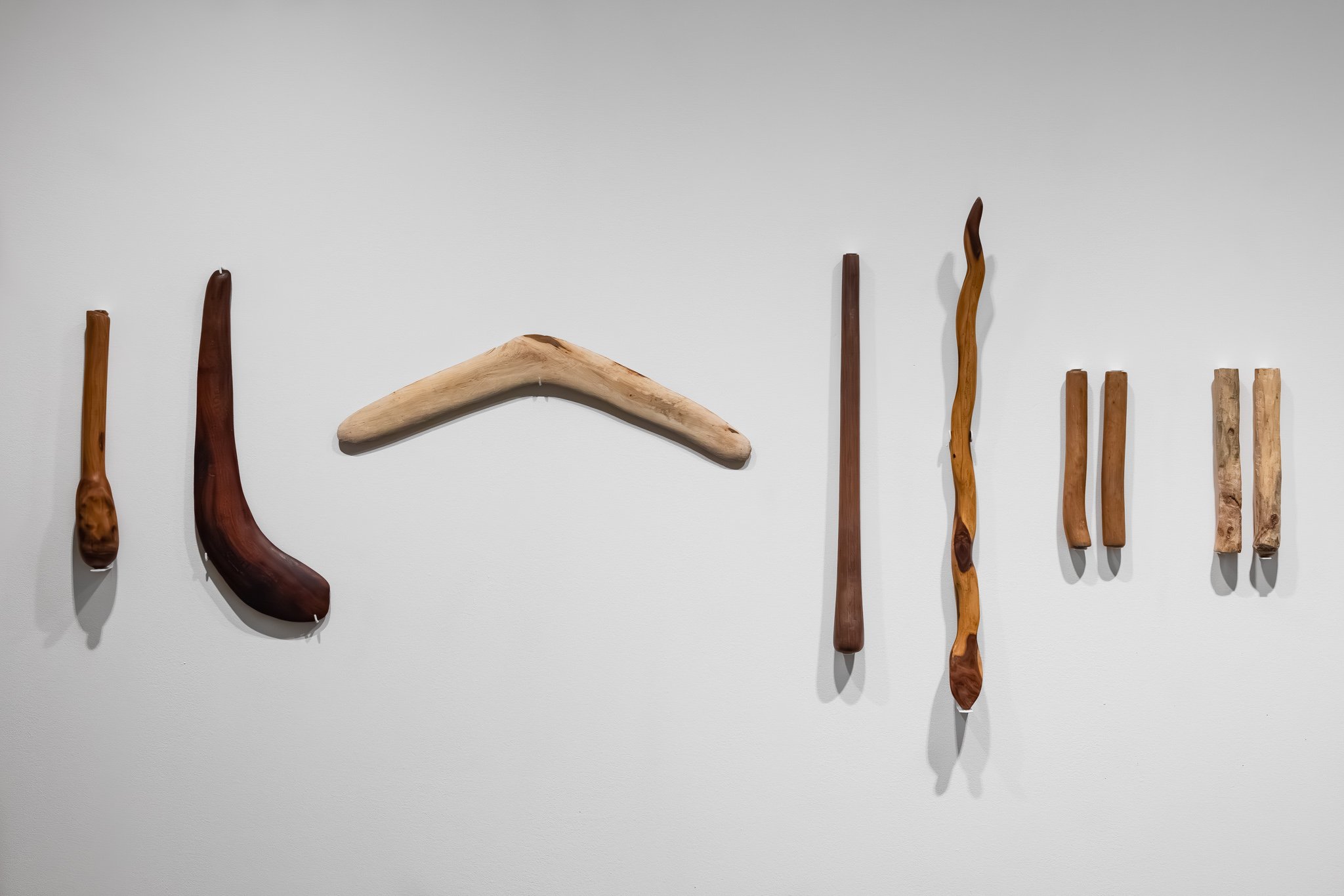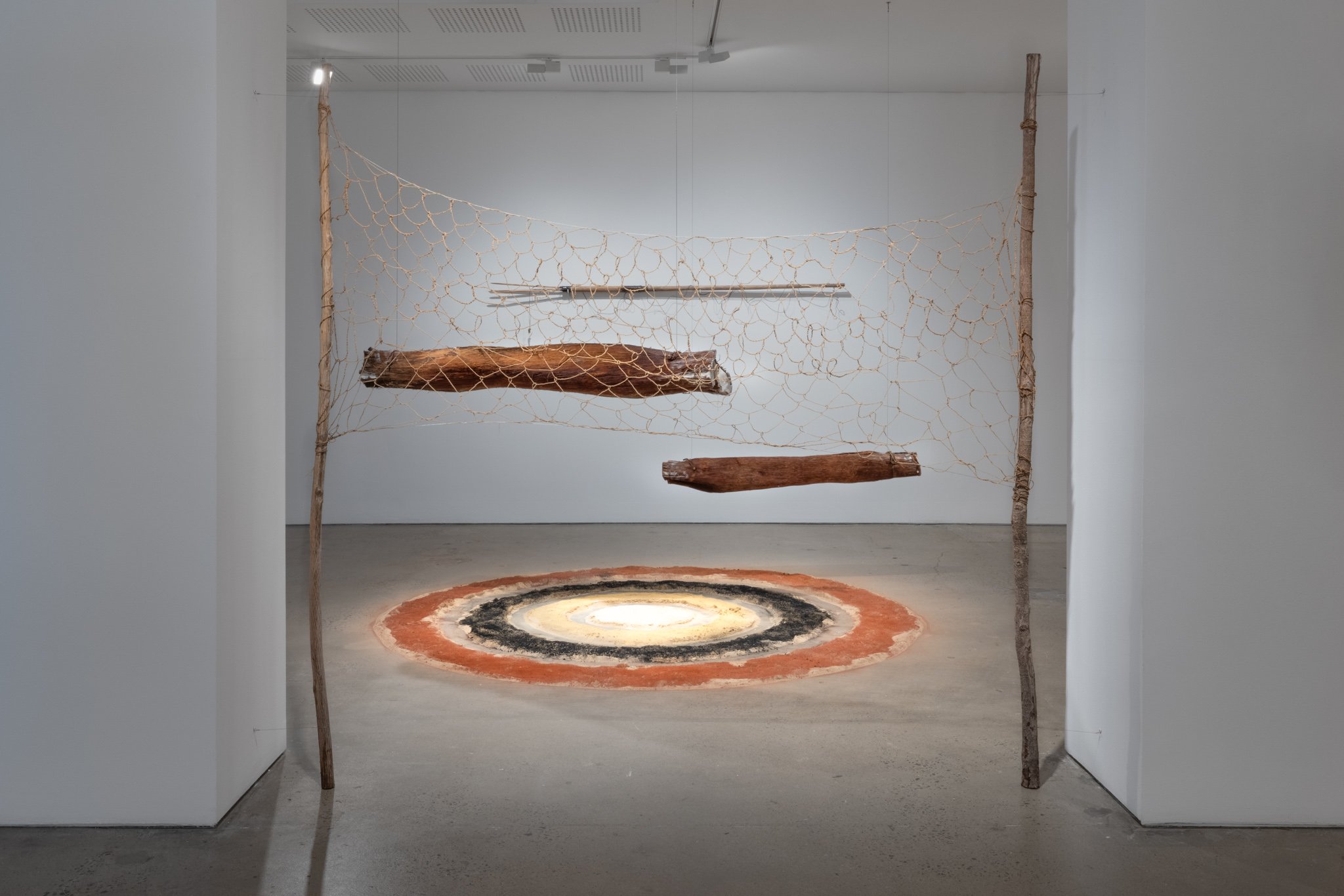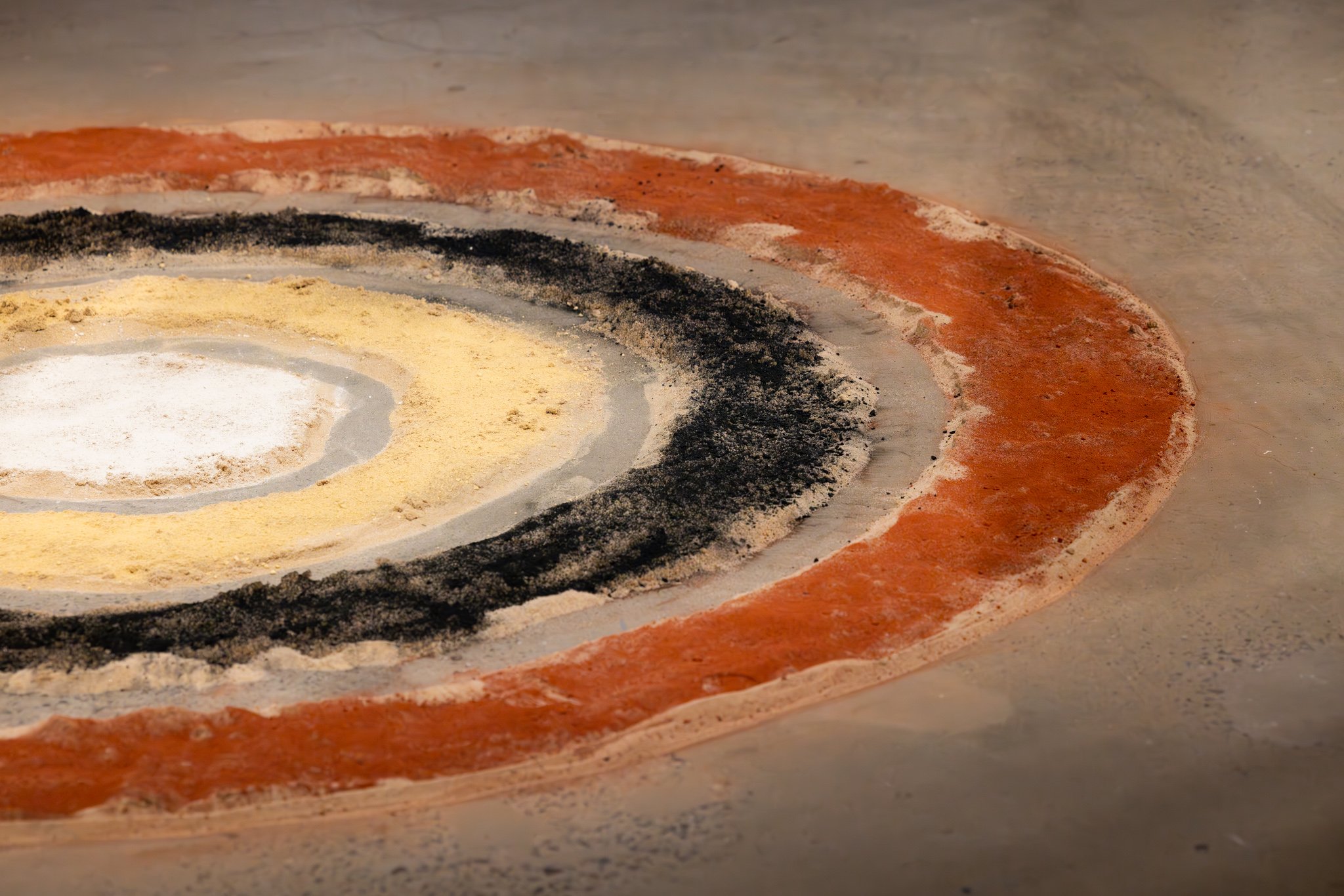Luke Russell
Arawayilah
Luke Russell is a proud Gringai/Worimi man and Cultural Knowledge Holder. Luke's practice and research is focused on learning and passing on the knowledge of his Elders. This includes sharing his knowledge of tool making and the practice of kuueeyung—traditional bark canoe-making. The kuueeyung was utilised by coastal peoples as the main form of transport across waterways and was also used for fishing. Starting from scratch with only three paragraphs written 100 years ago, Luke has worked closely with Elders and Cultural Knowledge Holders to revitalise the engineering and material mastery of this practice.
For the Worimi and Awabakal people, the Punnah (Worimi name) or stringybark tree is used to construct the kuueeyung. The bark is softened with fire to fold both ends which are tied with string. The rough bark of the tree is carefully stripped back until smooth to form the exterior. The smooth bark of the canoe’s interior is passed over the fire to crystalise the sap, creating a watertight seal. While bark canoes were used by people in river systems, lakes and estuaries throughout Australia before British colonisation, no canoes from that period survive. Luke is dedicated to re-awakening the artefacts, practices, stories and true language of the Worimi people, and those within the Kattung language group.
Luke Russell
Arawayila 2016–23
Kuueeyung (canoe) 2018
Kuueeyung (canoe) 2022
Punnah (stringybark tree) hull and rope, biitu (clay)
Tutti (Fishing Spear) 2022
Poonoongearn (gymea lilly), pumirri (grass tree), teekurah (iron bark), punnah rope and gum
Made in collaboration with Scott Luschwitz
Turee (hunting boomerang) 2021–22
Mangrove, beefwood
Boondee (club) 2016
Recycled timber
Makuurra Burrin (fishing net) 2021
Kurrakong (net)
Made in collaboration with Aunty Daniella and mob
Courtesy of the designer, Awabakal/Worimi Country
